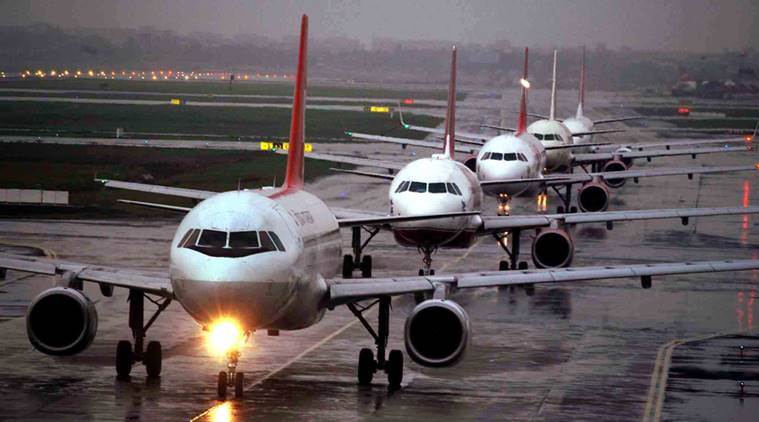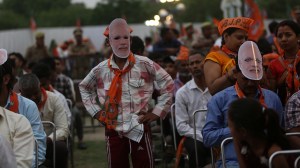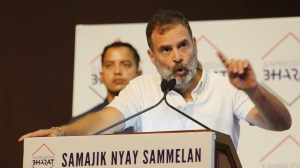- India
- International
Regional connectivity scheme: Govt plans to levy departures on trunk routes
A likely imposition of Rs 7,000 to Rs 8,000 per domestic departure is estimated to generate Rs 500 cr per year
 Besides the levy, the subsidised fare of Rs 2,500 will be funded through exemption to airlines from a host of charges, sharply lower services tax on tickets and reduced value added tax (VAT) on aviation turbine fuel. (Source: Express Photo by Vasant Prabhu)
Besides the levy, the subsidised fare of Rs 2,500 will be funded through exemption to airlines from a host of charges, sharply lower services tax on tickets and reduced value added tax (VAT) on aviation turbine fuel. (Source: Express Photo by Vasant Prabhu)
The government plans to impose a levy of Rs 7,000-8,000 per domestic departure flight on all trunk routes to subsidise airfare on operations to unconnected cities, Minister for Civil Aviation Ashok Gajapathi Raju said. This levy is estimated to generate Rs 500 crore annually to be used to fund the Regional Connectivity Scheme (RCS), under which airlines will offer services at an all inclusive airfare not exceeding Rs 2,500 for a one-hour flight.
“I think as of now it (levy) will come close to Rs 500 crore annually and we have four regions — North, South, East, West — to begin with,” Raju said, adding that the levy could be Rs 7,000-8000 per departure flight. While clearing the National Civil Aviation Policy 2016 earlier this month, the Union Cabinet announced the Regional Connectivity Scheme as the ‘centerpiece’ of its policy, aiming to raise the sale of domestic tickets to 30 crore in five years from 8 crore in 2015.
Besides the levy, the subsidised fare of Rs 2,500 will be funded through exemption to airlines from a host of charges, sharply lower services tax on tickets and reduced value added tax (VAT) on aviation turbine fuel. The government changed its earlier plan to levy a 2 per cent cess on each ticket to fund the RCS. Raju said the ministry thought a levy per departure flight may result in airlines absorbing some of the charge and not passing it on to the customer entirely. The government plans to start the RCS from second quarter of 2016-17.
[related-post]
Watch Video: What’s making news
“The draft talked about it being on per passenger basis, but now there is a slight change. They (the Cabinet) said that why don’t we put it on the airline per trip, so that some of it gets passed on and some of it, due to competition, might get absorbed also. On the consumer friendliness, that we would like to begin, so this has come up,” the minister said.
Raju said the government did not accede to suggestions of capping surge airfares, as its analysis of fares found the plan may be counter-productive. Many members of Parliament suggested the aviation ministry to put a cap on airfares as airlines would randomly raise ticket prices especially during exigencies. He said the government analysis showed that only 1.7 per cent of the tickets were a matter of concern, while the rest over 98 per cent were competitively priced.

“We did an analysis also, because in the Rajya Sabha this had come and some members were agitated and I understand. We realised in the whole year of ticketing, 1.7 per cent of the ticketing was a matter of concern. So 98 per cent of the ticketing was because of the competition taking care of. Now if you go in for caps and floors then you push down the rates for some, and you push up the rates for some,” he said, stressing why capping airfares would be counter-productive.
“So that doesn’t make sense when you are going to push up rates for 98 per cent of the travellers to benefit less than 2 per cent of the travellers. It doesn’t lend itself to an easy solution. But since this matter is there some people suggest that probably if you can have capacity addition, it might have a sultry effect on the prices. So that is one thing we can look into, how to motivate capacity,” he said.
Apr 25: Latest News
- 01
- 02
- 03
- 04
- 05







































